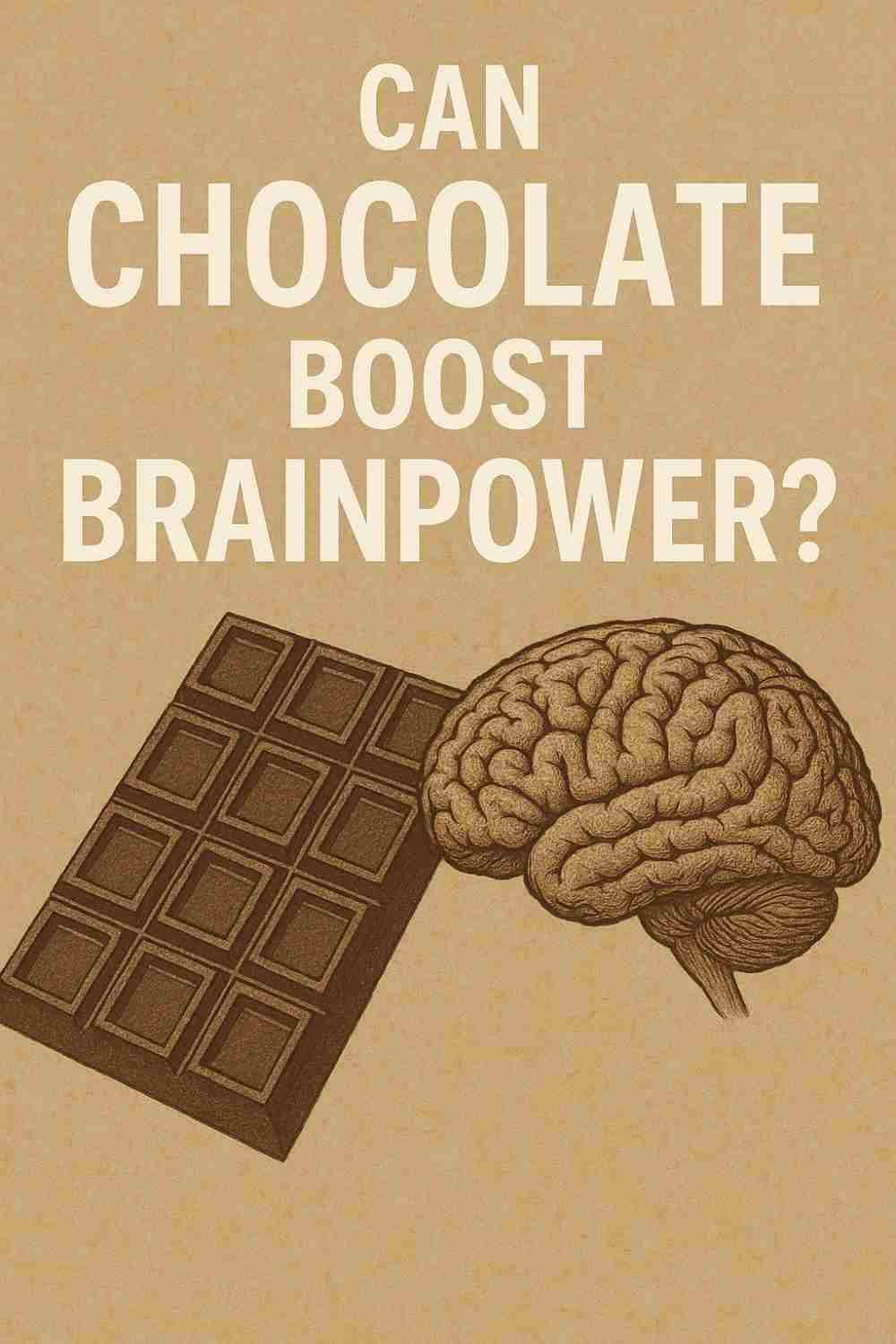 Ever had one of those afternoons where your brain feels like it’s running on fumes, and then—boom—a square of dark chocolate turns you back into a functioning human? It’s not just a sugar rush playing tricks on you. Science has been quietly nodding along, whispering, Yeah, chocolate might actually make you sharper. But before you raid the candy aisle, let’s talk about what’s really going on inside that cocoa bean.
Ever had one of those afternoons where your brain feels like it’s running on fumes, and then—boom—a square of dark chocolate turns you back into a functioning human? It’s not just a sugar rush playing tricks on you. Science has been quietly nodding along, whispering, Yeah, chocolate might actually make you sharper. But before you raid the candy aisle, let’s talk about what’s really going on inside that cocoa bean.
The Brain’s Love Affair with Cocoa
Chocolate isn’t just a guilty pleasure; it’s packed with compounds that flirt with your neurons. Flavonoids, the antioxidants found in cocoa, are the star players here. They boost blood flow to the brain, which is like giving your gray matter a double shot of espresso without the jitters. A study from the University of Nottingham found that drinking cocoa rich in flavonoids improved cognitive function for hours—imagine what that could do during a mid-afternoon slump.
But here’s the kicker: not all chocolate is created equal. A Hershey’s bar won’t cut it. The real magic happens with dark chocolate, preferably 70% cocoa or higher. Milk chocolate? Mostly sugar and wishful thinking.
Memory, Mood, and the Magic Bean
Ever notice how a bite of good chocolate feels like a warm hug for your brain? That’s not just psychological. Cocoa triggers the release of serotonin and endorphins—your brain’s “feel-good” squad. And when you’re in a better mood, you think clearer. It’s science with a side of happiness.
Then there’s memory. Researchers at Columbia University discovered that older adults who consumed high-flavonoid cocoa for three months showed significant improvements in memory tests. The catch? The participants were drinking a specially formulated cocoa drink, not chomping on bars. Still, it’s a tantalizing hint that cocoa’s benefits aren’t just short-term.
The Fine Print: Chocolate Isn’t a Miracle Worker
Before you swap your morning coffee for a chocolate bar, let’s get real. Chocolate isn’t a brainpower silver bullet. The studies? Mostly small, often funded by chocolate companies (surprise, surprise), and the effects are subtle. You won’t turn into Einstein after a Toblerone. But as part of a balanced diet? It’s a delicious ally.
And let’s talk about sugar. Too much of it—even in chocolate—can lead to crashes that leave you foggy. That’s why dark chocolate steals the spotlight: less sugar, more flavonoids. If you’re going to indulge, make it count.
How to Hack Your Chocolate Fix
Want the brain boost without the guilt? Here’s how to do it right:
🍫 Go dark or go home – Aim for 70% cocoa or higher. The bitterer, the better (for your brain, at least).
🍫 Moderation is key – A couple of squares a day is plenty. This isn’t an all-you-can-eat buffet.
🍫 Pair it wisely – Nuts, berries, or even a cup of green tea can amplify the benefits.
🍫 Skip the fake stuff – “Chocolate-flavored” snacks are just sad imitations. Stick to the real deal.
The Fun Part: Chocolate as a Brainy Ritual
Here’s a thought: what if chocolate’s power isn’t just chemical but ritualistic? Taking a mindful break with a piece of good chocolate forces you to pause, reset, and savor. That alone can sharpen your focus. It’s not just about the cocoa—it’s about the moment.
And hey, if you’re looking for a fun way to test your brainpower (chocolate optional), try this Bing homepage quiz or challenge your pop-culture savvy with the Bing entertainment quiz. Who knows? Maybe a little cocoa will help you ace them.
The Bottom Line
Chocolate won’t turn you into a genius, but it might give your brain a gentle nudge in the right direction. The key? Quality over quantity, dark over milk, and a little self-control. So next time you’re staring blankly at your screen, reach for the good stuff—your brain (and taste buds) will thank you.
Now, if you’ll excuse me, I have a date with a 85% cocoa bar and a crossword puzzle. Let’s see if the hype is real. 🍫
